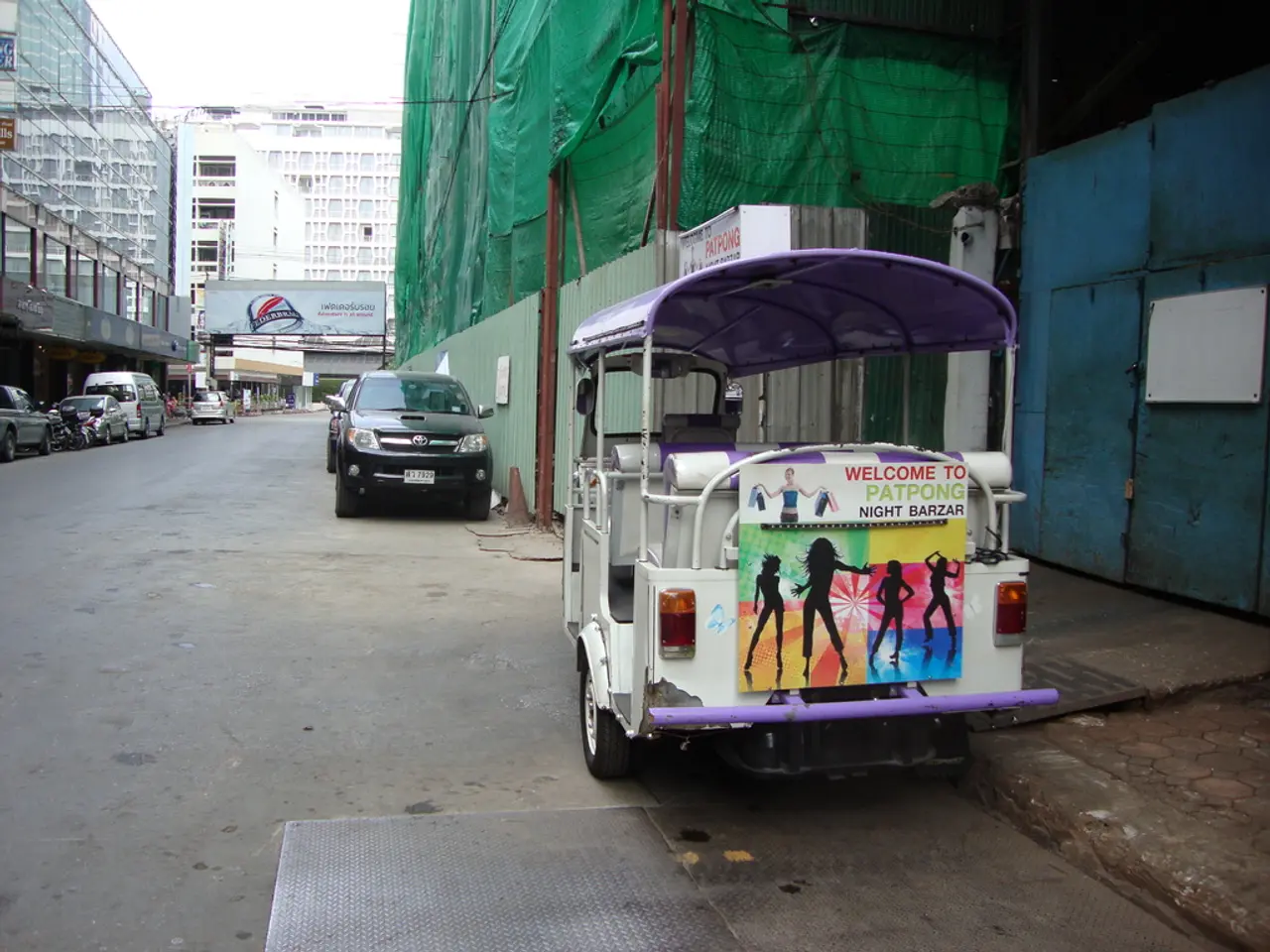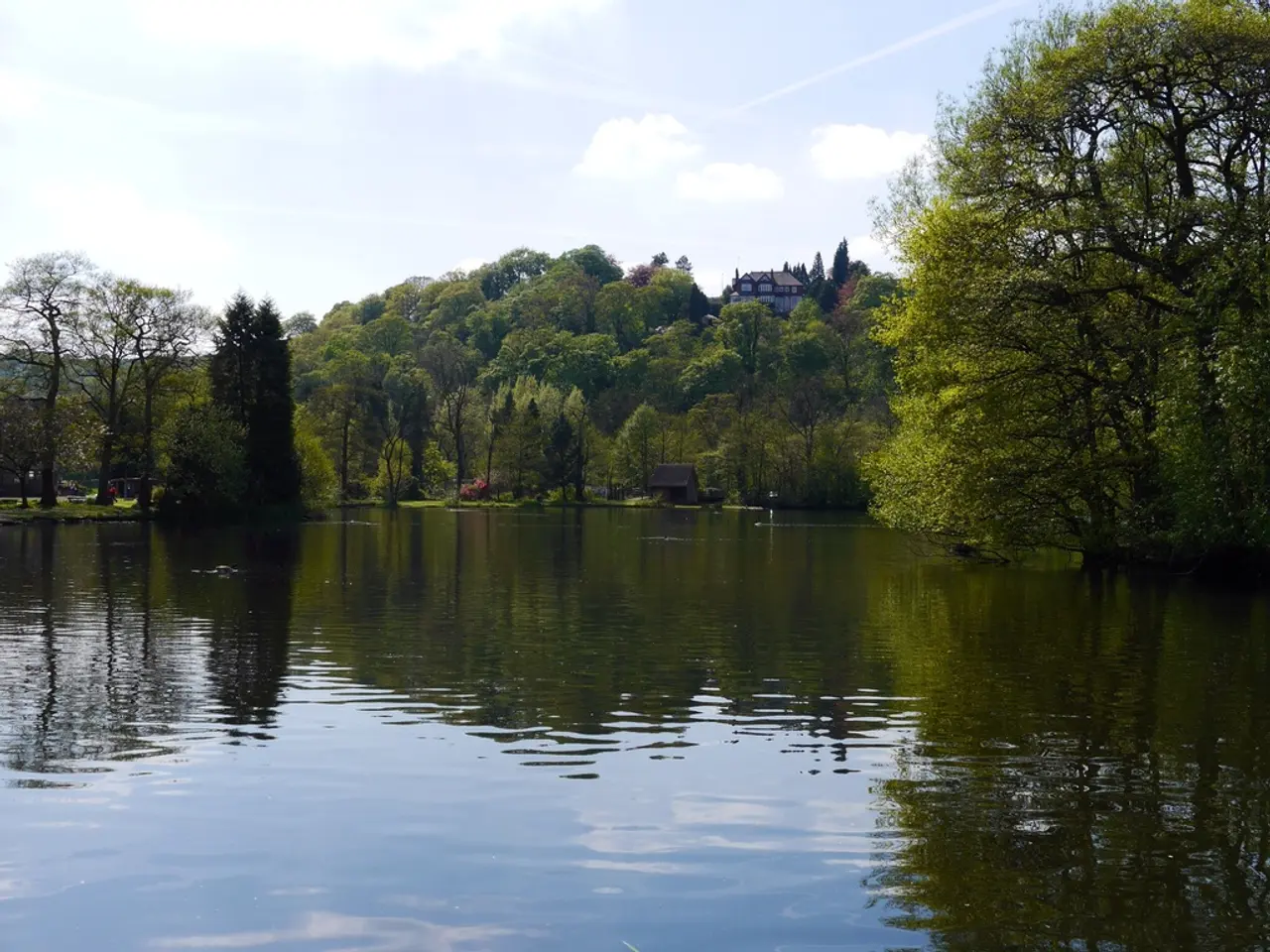Decrease in carbon emissions from the travel and tourism sector unveiled by WTTC
The World Travel & Tourism Council (WTTC) has unveiled a comprehensive strategy to decouple sector growth from greenhouse gas emissions and achieve absolute reductions, as outlined in recent forums such as the 2025 Rhodes Forum.
The strategy encompasses a holistic approach to transform the travel and tourism industry, focusing on technology, policy, business support, ecosystem restoration, and collaborative governance. Here are the key strategies:
- Transitioning to a low-carbon economy: Both leisure and business travel are prioritized to shift towards sustainable, low-emission practices.
- Empowering micro, small, and medium-sized enterprises (MSMEs): Offering these businesses tools and support to adopt green practices is central to achieving industry-wide emissions reductions.
- Adoption of renewable energy and efficiency upgrades: Especially in sectors like hospitality, hotels are targeted to cut emissions significantly by switching energy sources, improving building efficiency, and implementing sustainability initiatives.
- Use of carbon offsetting in the short term: Verified carbon offset projects, including ecosystem conservation and innovative carbon removal technologies, help mitigate unavoidable emissions.
- Collaboration and knowledge sharing: Platforms like the Rhodes Forum enable stakeholders to assess progress, exchange best practices, and align strategies to meet medium- and long-term climate goals.
- Sustainable destination management and infrastructure planning: Cities like Gothenburg serve as models for sustainable visitor economies through public-private partnerships, governance, and community engagement that support climate innovation.
- Data-driven climate action plans: Incorporating tools like carbon footprint calculators for travel companies and destinations helps in measurement and targeted emission reductions.
The WTTC's strategy aims to achieve absolute reductions in emissions while allowing the travel & tourism sector growth. Notable progress has been made, with the share of low-carbon energy sources (nuclear and renewables) increasing from 5.1% in 2019 to 5.9% in 2023. The sector's economic contribution grew faster than its environmental impact during this period.
In 2023, the sector accounted for 6.5% of all global emissions, down from 7.8% in 2019. Global GHG emissions in 2023 were 12% below the 2019 peak. The sector's reliance on fossil fuel energy sources dropped to 88.2% from 90% in 2019.
Julia Simpson, WTTC President & CEO, stated that the sector is proving it can grow responsibly and is decoupling growth from emissions. In 2023, Travel & Tourism's contribution to global GDP almost reached pre-pandemic levels at US$9.9TN.
The WTTC's 24th Global Summit is being held in Perth, Australia. Governments are encouraged to support businesses in their green transition with the revenues from Travel & Tourism. They are also urged to expand renewable energy sources and reinvest additional revenues from Travel & Tourism into decarbonising infrastructure.
The full report on "Social Trends in Travel & Tourism Employment: The Impacts of COVID-19" can be found on the Research Hub. The sector is on a promising path towards a more sustainable future, and the WTTC's strategies are a significant step in that direction.
[1] World Travel & Tourism Council. (2023). Decoupling sector growth from greenhouse gas emissions: Strategies for absolute reductions. Retrieved from https://www.wttc.org/research/decoupling-sector-growth-from-greenhouse-gas-emissions-strategies-for-absolute-reductions
[2] World Travel & Tourism Council. (2023). Low-carbon economy transition in travel & tourism. Retrieved from https://www.wttc.org/research/low-carbon-economy-transition-in-travel-tourism
[3] World Travel & Tourism Council. (2023). Empowering micro, small, and medium-sized enterprises in travel & tourism. Retrieved from https://www.wttc.org/research/empowering-micro-small-and-medium-sized-enterprises-in-travel-tourism
[4] World Travel & Tourism Council. (2023). Sustainable destination management and infrastructure planning in travel & tourism. Retrieved from https://www.wttc.org/research/sustainable-destination-management-and-infrastructure-planning-in-travel-tourism
- The World Travel & Tourism Council (WTTC) is advocating for a transition to a low-carbon economy, prioritizing both leisure and business travel to shift towards sustainable, low-emission practices.
- To promote industry-wide emissions reductions, the WTTC is focusing on empowering micro, small, and medium-sized enterprises (MSMEs) within the travel and tourism industry, offering them tools and support to adopt green practices.
- In an effort to decarbonize the travel and tourism sector, the WTTC is advocating for the adoption of renewable energy and energy efficiency upgrades, particularly in sectors like hospitality, with a goal of significantly reducing emissions via switching energy sources, improving building efficiency, and implementing sustainability initiatives.




